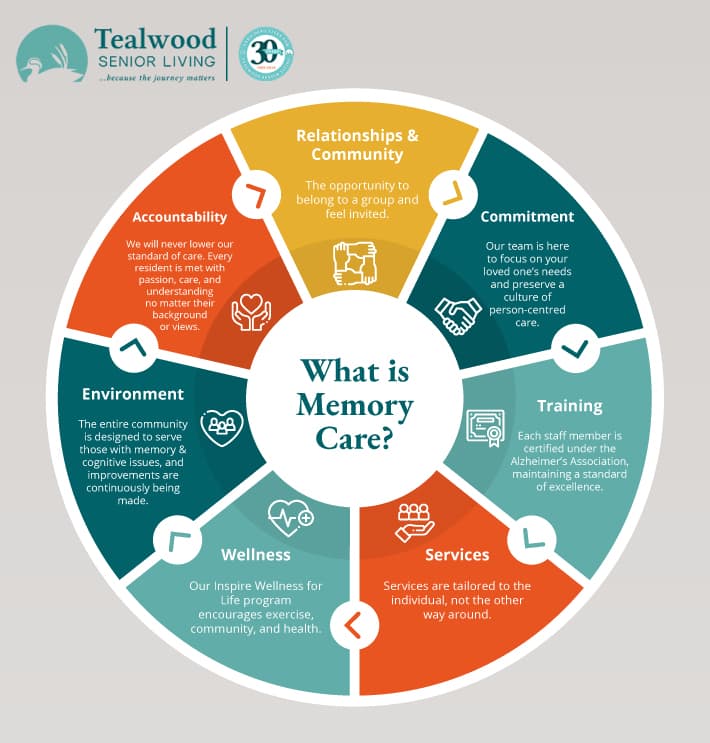Comprehensive Family Support Readily Available with Alzheimers Care Charlotte
Comprehensive Family Support Readily Available with Alzheimers Care Charlotte
Blog Article
Creating a Safe and Helpful Environment for Alzheimer's Treatment
The production of a helpful and safe setting for individuals with Alzheimer's is paramount in enhancing their high quality of life. This involves not only physical adaptations within the home, such as decreasing hazards and incorporating acquainted aspects, but likewise the implementation of structured regimens and significant tasks that satisfy their cognitive requirements. Comprehending the psychological and emotional measurements of treatment can significantly influence their feeling of safety and link. Discovering these multifaceted strategies can disclose vital understandings right into efficient caregiving techniques that might transform the daily experiences of both patients and caretakers.
Recognizing Alzheimer's Demands
Frequently, people with Alzheimer's disease show a series of needs that require tailored methods to care. As the problem advances, cognitive decrease manifests in various methods, affecting memory, thinking, and even the capacity to do everyday tasks. Caretakers have to recognize these progressing requirements to offer suitable assistance and ensure a greater top quality of life for those impacted.
One critical element of understanding Alzheimer's demands is recognizing the significance of routine and familiarity. People typically discover comfort in well-known patterns, which can minimize anxiety and complication. Caretakers ought to strive to develop structured day-to-day routines that incorporate purposeful tasks aligned with the individual's abilities and passions.
Furthermore, effective interaction is paramount. People with Alzheimer's may struggle to share themselves or comprehend intricate language. Caretakers should utilize easy, clear language, usage non-verbal hints, and technique active paying attention to foster understanding and link.
Lastly, social and emotional requirements can not be overlooked. Giving chances for social communication and maintaining connections can significantly improve psychological health. Caregivers ought to motivate involvement in community activities or family celebrations, advertising a sense of belonging and purpose. Comprehending these varied needs is necessary for creating a supportive care atmosphere.
Creating a Safe Home
Creating a risk-free home for people with Alzheimer's condition is necessary to advertising and minimizing threats freedom. The design of the home must focus on security while permitting for individual comfort. First, get rid of possible risks such as loose rugs, sharp things, and clutter, which can result in falls or crashes. Make sure that pathways are well-lit and clear, as correct illumination reduces disorientation and boosts wheelchair.
Integrating flexible features is additionally important. Install grab bars in shower rooms and near stairs, and think about using non-slip mats in damp areas. Furthermore, using contrasting shades for wall surfaces and floors can aid in distinguishing rooms, helping to alleviate complication.
Familiarity is necessary for individuals with Alzheimer's. Customizing the atmosphere with acquainted objects and photos can enhance a feeling of belonging and protection - Alzheimers Care Charlotte. It is likewise helpful to have actually a marked area for day-to-day tasks, such as reading or crafting, which can offer framework to their day
Finally, implementing a protected outside room permits for safe exploration while getting in touch with nature. By thoughtfully creating the home setting, caretakers can significantly enhance the lifestyle for individuals living with Alzheimer's illness.
Enhancing Communication Skills

Non-verbal communication, consisting of faces, motions, and touch, plays a crucial duty in communicating empathy and understanding. Keeping eye get in touch with and a calm demeanor can boost the convenience level of the person, promoting a feeling of security.
In addition, it is vital to practice energetic listening. This includes being fully existing, showing persistence, and allowing the individual to express themselves without disturbance. Repetition might be required; caretakers ought to be prepared to take another look at topics or inquiries, as people with Alzheimer's might have problem with memory recall.
Furthermore, using visual help or signs, such as photographs or familiar items, can facilitate recognition and interaction. Ultimately, improving interaction skills is concerning building depend on and creating a setting where individuals really feel listened to, valued, and understood, consequently enriching their high quality of life.
Encouraging Social Interaction
Promoting purposeful social interactions can substantially enhance the well-being of people with Alzheimer's condition. Engaging with others not only assists battle sensations of seclusion but likewise boosts cognitive feature and emotional wellness. Structured social activities, such as group video games, crafts and arts, or music therapy, produce possibilities for residents to link with peers and caretakers, which can bring about improved mood and decreased stress and anxiety.
Developing a welcoming setting that motivates socialization is crucial. This can be achieved by arranging communal spaces that assist in communication, such as comfy seating locations or task rooms. Furthermore, incorporating acquainted and culturally relevant activities can motivate and stimulate memories involvement, permitting people with Alzheimer's to feel even more linked to their previous experiences.
Moreover, caretakers need click here to read to be trained to identify and promote social involvement amongst locals. By focusing on social communication, we can substantially enrich the lives of those living with Alzheimer's, fostering a sense of neighborhood and belonging.
Supporting Caretaker Well-being

To support caregivers, organizations must supply regular training and educational resources to improve their understanding of Alzheimer's illness and caregiving strategies. Providing access to respite care services enables caretakers to take needed breaks, lowering stress and fatigue - Alzheimers Care Charlotte. Furthermore, cultivating an area via support system can facilitate psychological sharing and the exchange of practical guidance among caregivers, creating a network of mutual support
Mental health resources, such as therapy solutions, can likewise be crucial in attending to the psychological toll caregiving can take. By prioritizing caregiver wellness, we produce a more sustainable caregiving setting that not only profits the caretakers themselves yet likewise enhances the overall high quality of care received by people with Alzheimer's. Inevitably, sustaining caregivers is an essential component in cultivating a efficient and compassionate treatment setup.
Conclusion
Finally, the creation of a supportive and secure environment for individuals with Alzheimer's is necessary to boosting their top quality of life. By prioritizing safety via thoughtful style, fostering psychological wellness with familiar components, and promoting involvement with structured routines, caregivers can significantly influence the overall experience of those affected by this problem. Sustaining caregiver health is essential, as it inevitably contributes to an extra compassionate and efficient treatment environment.
Rep may be essential; caregivers must be prepared to take another look at questions or topics, as people with Alzheimer's might have a hard time with memory recall.

Report this page